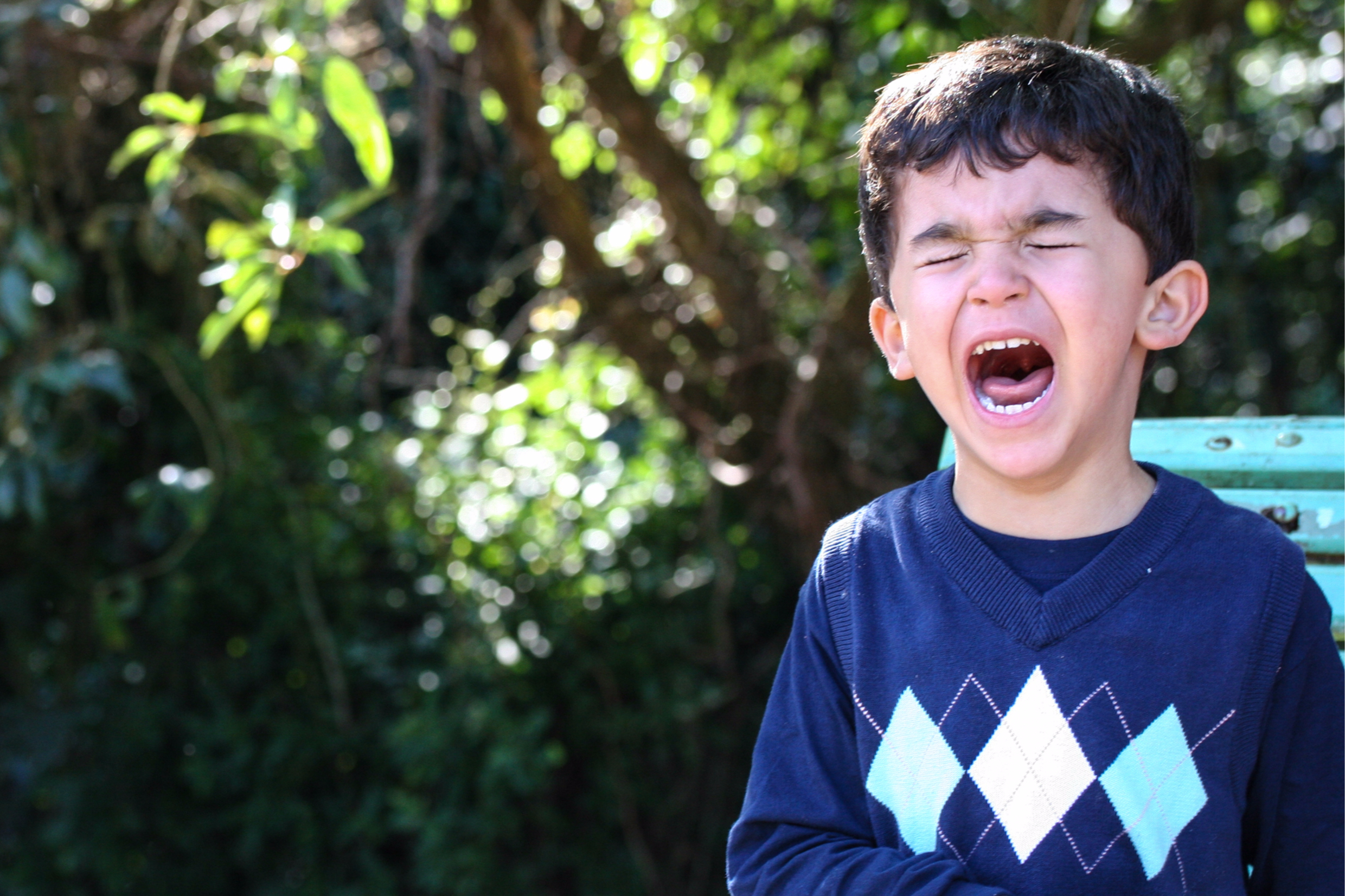
You know what sucks? When adults forget how hard being a kid can be. And what’s even worse is when those same adults, when faced with a crying boy who’s just been beaned in the face with a ball, don’t take a second to let the kid feel their feelings but demand that they “man up” and “hide the pain.” One mom, former Jersey Belle star Jaime Primak Sullivan, isn’t taking that laying down, though. So when a complete stranger told her that she needed to stop “coddling” her son, Sullivan decided to teach her son something different.
In a Facebook post that’s gone viral since Thursday, Sullivan recounts the story of what happened after her son Max was hit in the face with a ball and panicked (as children do) when the pain hit him.
From Sullivan’s Facebook post:
Last Saturday my 8 year old son Max was playing in his school basketball game. Somewhere is the shuffle he was hit in the face with the ball. I saw it happen like it was slow motion. I saw his eyes widen and then squint from the pain — he looked around trying to focus. I knew he was looking for me. “Max got hit in the face”, I said to my husband as I instinctively jumped up from the bleachers. In that moment, I saw Max start to run around the court in my direction as the silent cry began. He couldn’t catch his breath. My feet couldn’t move fast enough. As soon as we connected, I got down on one knee. “Catch your breath buddy.” He tilted his head back. “Max, breath. It’s okay.” He finally took a breath, and I wrapped my arms around him as he cried into my shoulder. A voice came from behind me — “You need to stop babying that kid.” My mind registered the sentiment, but I kept my focus on Max. I cleaned his face, and wiped his tears. Once I knew he was okay, i sent him back around the court to join his team on the bench.
I climbed back up on the bleachers. My hands shaking. i was so angry. I fussed about it all the way home. My husband blew it off. “Who cares what they think?”
First of all, why do people think they can parent other people’s children? And second of all, what’s the point of telling boys not to cry? Is there any reason to leave gender norms like this in place when it’s clear that teaching boys that feelings need to be kept inside and never let out — lest they appear to be “wimps” — will have deleterious effects as they age? What’s the idea here? Is it a worry that the kid will be bullied? Is it some personal discomfort? Why can’t some people just be okay with a boy crying after, again, being hit in the face with a basketball and getting the wind knocked out of them? It’s a scary experience.
Fortunately, Sullivan wasn’t going to just let it slide. While she didn’t confront the man — she attributes not cursing him out to the fact that Max goes to a Catholic school — she did the next best thing. She reached out to her audience and reminded them that there’s no future in continuing to perpetuate the idea boys can’t, won’t, or shouldn’t cry:
This notion that boys can never hurt, that they can never feel, is so damaging to them long term. The belief that any signs or gestures of affection will somehow decrease their manhood — this pressure to always “man up” follows them into adulthood where they struggle to fully experience the broad scope of love and affection. The only emotion they healthily learn to express is happiness then we wonder why they are always chasing it.
They’re taught that sadness is weakness, that talking about their fears or short comings makes them less than. They don’t mourn properly. The struggle to grieve. They’re afraid to cry. It all spills into the way they husband and father and I hate it.
Love is a verb. It is something you do. It is not the same as babying, coddling or spoiling. It is something my son deserves. I will always love him when he is hurting and my prayer for him is that he is alway open to receiving love so he can love in return and keep that cycle going.
Sullivan’s post has been shared and liked thousands of times and commenters are reaching out to share their own stories about how they’ve supported their own kids through the pain. Here’s hoping that the guy who told her how to parent reads her post and thinks about it. But you know what? Even if he doesn’t, the people who did read it — the people who are now going to speak out when they see this type of behavior — will be more than happy to correct him the next time.






